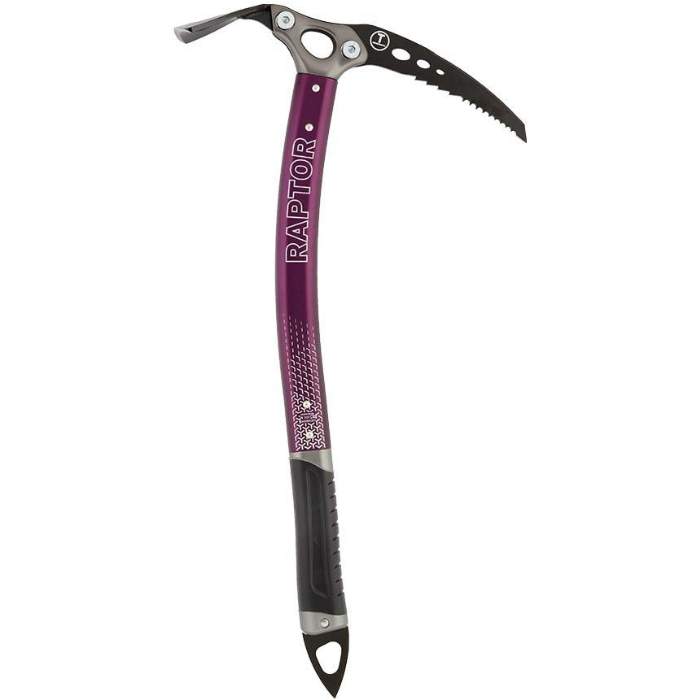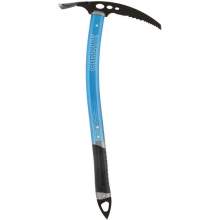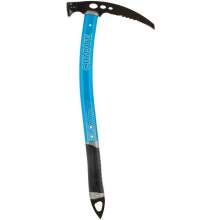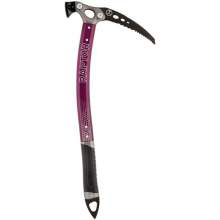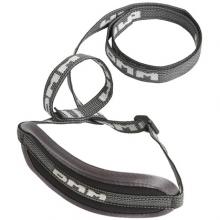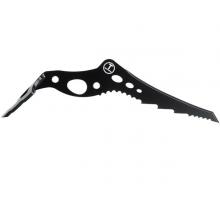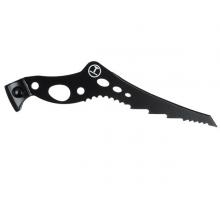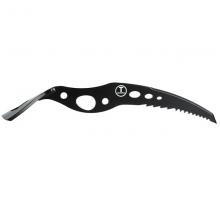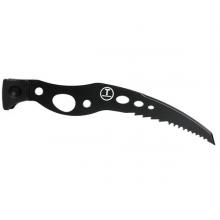Warnings, general information, maintenance, servicing, lifespan and instructional pictures.
Raptor Adze
Description
The gentle curve in the shaft gives clearance when swinging without compromising the Raptor’s ability to self arrest.
A full size hammer and adze make light work of cutting steps and ledges and bashing in pegs for security. The spike on the base of the handle rounds out the Raptors mountaineering capability by giving security on snow and ice slopes.
For those wishing to venture into steep terrain the Raptor can be fitted with a Fly pick that improves climbing performance. A Choke Hold Leash prevents you accidentally dropping the axe, and allows resting opportunities if climbing steeper ground.
Picks on the Fly and Raptor are interchangeable, allowing you to customize the axes to improve performance on either steeper or more traditional terrain. Fly picks are more aggressive for climbing steep ice and mixed, while the Raptor's Alpine Pick gives better self arrest performance.
The Raptor comes with our Choke Hold leash, keeping the axe firmly secured to you in case of an accidental drop and making it easier to climb steep terrain.
The gentle curve in the shaft gives clearance when swinging without compromising the Raptor’s ability to self arrest.
A full size hammer and adze make light work of cutting steps and ledges and bashing in pegs for security. The spike on the base of the handle rounds out the Raptors mountaineering capability by giving security on snow and ice slopes.
For those wishing to venture into steep terrain the Raptor can be fitted with a Fly pick that improves climbing performance. A...
read moreRetail price
This Product is Hard to Find.
We don’t know where you can buy this item online in the US. We’ll continue to check all the major retailers and will update this page as soon as we find one.
If you know where to find this online in the US, let us know, and we’ll add the link.
Weight (g / oz)  | 644 g / 22.72 oz 50 cm: 644 g / 22.72 oz |
Best Use  |
Technical Mountaineering |
Length Options (cm)  |
50 cm, 55 cm |
Head Details  | Adze Pair axe: Raptor Hammer |
Ice Rating  | Pick: T / Type 2 Shaft: T / Type 2 |
Materials  | Pick: Steel Head: Steel Shaft: 7075 Aluminum Grip: Injection Molded Rubber |
Certification  |
CE, UIAA |
Warranty  |
|
No reviews yet.
At £125 the DMM Raptor is not a budget option, but its price is roughly on a par with similar models from other well regarded brands. Since this is an axe that's built to last, you're going to get years of service for your money. Its relatively high weight may be a little off-putting on paper, but in use it reflects its general sturdiness, and the T-rating that makes it suitable for use in belays. A refined design makes this a superb all-rounder, with plenty of technical juice in the tank for classic mountaineering, yet without being overkill for hillwalking on less steep terrain. If you were only going to buy one axe for everything from winter Munros, through Scottish grade Is and IIs, to Alpine normal routes, then I can't see anyone regretting a Raptor. While I'll always have a soft spot for the original, the much improved current version looks set to be my new favourite axe for years to come.


